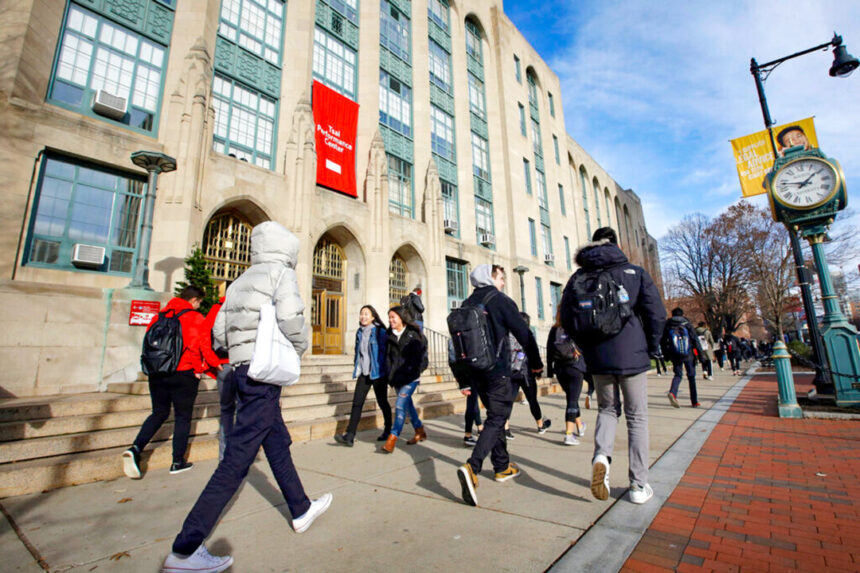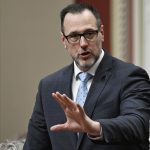Commentary
The Trump administration has marked a turning point in the battle over diversity, equity, and inclusion (DEI) in higher education, transforming what had long been an institutional orthodoxy into a contentious national and international debate.
Two executive orders—“Ending Radical and Wasteful Government DEI Programs and Preferencing” and “Ending Illegal Discrimination and Restoring Merit-Based Opportunity”—directly targeted DEI initiatives within federal agencies and extended these restrictions to private organizations receiving federal contracts.
Though limited in scope, these orders wield significant influence over American universities, which depend heavily on federal grants, student financial aid, and research funding. This reliance reveals the academic bureaucracy’s soft underbelly: its reliance on public funding.
For decades, DEI ideology has been woven into the fabric of higher education in both the United States and Canada, not as a peripheral initiative but as a guiding orthodoxy, shaping hiring practices, curricula, and the broader intellectual climate. Rather than fostering open inquiry, it has reshaped academia into a vehicle for social engineering, where identity takes precedence over merit.
American universities have responded to Trump’s orders with predictable strategic obfuscation. The administrative class, deeply entrenched in DEI, has skillfully rebranded and restructured its programs, maintaining its influence while projecting an illusion of compliance. DEI is being relabelled under euphemistic titles such as “Belonging and Justice Initiatives.”
Expecting these institutions to engage in genuine introspection—let alone reform—is naive. The deeper problem is that DEI functions as a belief system, a quasi-religious conviction for many within the academy. For many, DEI is not a set of policies, but an article of faith, and faith-based commitments do not dissolve merely because of executive orders. DEI’s disciples will not relinquish their ideological grip willingly or abandon their efforts to shape higher education into an institution devoted to radical activism rather than free intellectual pursuit.
While America is seeing resistance to DEI, Canada’s legal framework presents significant hurdles to any meaningful challenge. The most formidable barrier is Section 15(2) of the Charter of Rights and Freedoms, which explicitly allows for affirmative action and preferential hiring based on race, gender, and other identity markers. Whereas in the United States, legal challenges to DEI policies can be mounted under Title VII of the Civil Rights Act or the equal protection clause of the Fourteenth Amendment, Section 15.2 of the Charter actively protects DEI initiatives from legal scrutiny.
The Canada Research Chairs program, for instance, has institutionalized DEI quotas, mandating that hiring committees prioritize applicants from designated identity groups—women, indigenous peoples, persons with disabilities, and racialized minorities—until strict diversity targets are met. This is not merely the promotion of “equity” as a guiding principle but the direct subordination of meritocratic standards to demographic quotas. It is, in effect, the government-mandated re-engineering of Canadian academia.
Unlike their American counterparts, Canadian universities have no real incentive to moderate their ideological commitments. The entrenchment of DEI is so complete that dissenters—whether faculty, students, or prospective hires—risk ostracization, if not outright professional sanction, should they challenge the reigning orthodoxy.
Legal challenges in the United States create openings for dissent. For example, the Supreme Court’s ruling in Students for Fair Admissions v. Harvard—which struck down race-based affirmative action in college admissions—has further emboldened opponents of DEI, giving legal weight to claims that identity-based preferencing is fundamentally at odds with the principles of fairness and equal opportunity.
Until recently, a commitment to liberal learning defined higher education: the belief that the university exists as a sanctuary for free inquiry, robust debate, and the pursuit of truth. The purpose of higher education was never to reshape society according to an abstract vision of social justice but to cultivate and enlighten the minds of students. Today, our universities operate as moralized bureaucracies, preserving ideological conformity through administrative decree and reinforcing it with professional gatekeeping.
The American case shows DEI’s dominance in higher education is not an unassailable reality. Political shifts, legal challenges, and growing public awareness suggest that the ideological capture of universities can be reversed, paving the way for a renewed commitment to academic freedom and intellectual diversity.
This moment presents a rare opportunity for universities to reclaim their first principles: to renew their commitment to the pursuit of truth, cultivate open inquiry, and uphold the timeless ideal of meritocratic excellence.
Michael Oakeshott, the distinguished British philosopher, argued that universities should foster critical thinking and open inquiry. For Oakeshott, the university is a living conversation where students cultivate the ability to think, feel, imagine, and understand the world as part of the ongoing “conversation of mankind.”
The future of Canadian academia is still being written, offering those who value open inquiry both the responsibility and the opportunity to shape its direction. Even deeply entrenched institutions can be reformed, and the pursuit of knowledge, once awakened, resists suppression.
Now is the time to uphold the timeless principles of truth, reason, and intellectual freedom—the very foundation of higher learning. In an era in which our universities have been stunted by ideological conformity, we must reaffirm these ideals and defend the open pursuit of knowledge.
Views expressed in this article are opinions of the author and do not necessarily reflect the views of The Epoch Times.













